Training for Individuals, Communities,
Nonprofits, & Local Governments
Become Adaptable and Resilient
Get road-tested, affordable, do-it-yourself solutions for a changing climate that YOU can launch NOW!
Start today with ‘8 Steps to Cut Your Carbon Footprint 50%.’
Sustainable international development is a concept that emphasizes the need to balance economic growth, social progress, and environmental protection in order to meet the needs of present and future generations. It recognizes the interconnectedness of these three pillars and seeks to create holistic solutions that address global challenges.
In the 21st century, sustainable international development has become more crucial than ever before.
United Nations and Sustainable Development The United Nations (UN) plays a vital role in promoting sustainable development on a global scale. In 2015, the UN adopted the 2030 Agenda for Sustainable Development, which sets out 17 Sustainable Development Goals (SDGs) to be achieved by 2030. These goals cover a wide range of issues, including poverty eradication, gender equality, clean energy, sustainable cities, and responsible consumption and production.
International Institute for Sustainable Development (IISD) The International Institute for Sustainable Development (IISD) is a non-profit organization that focuses on research, analysis, and dialogue to advance sustainable development goals. It aims to promote knowledge and provide practical solutions for policymakers, businesses, and civil society to implement sustainable practices.
Climate Change Mitigation and Adaptation Climate change is one of the most pressing global challenges we face today. It requires urgent action to mitigate its effects and adapt to the changes already happening. Sustainable international development plays a crucial role in addressing climate change through various strategies.
Sustainable Development Goal 2 (SDG 2) focuses on achieving zero hunger and ensuring food security for all. It aims to end hunger, achieve food security, improve nutrition, and promote sustainable agriculture by 2030.
Sustainable energy transition is another key issue in sustainable international development. Transitioning to clean and renewable sources of energy is essential to combat climate change and build a sustainable future.
Nature-based infrastructure refers to using natural ecosystems and biodiversity to provide sustainable solutions for various development needs. This approach recognizes the value of natural resources in addressing societal challenges and promotes the conservation and restoration of ecosystems.
Economic growth and sustainability are often seen as conflicting goals, but they can be mutually reinforcing. Sustainable development recognizes the importance of balancing economic prosperity with social well-being and environmental protection.
Environmental protection and conservation are vital components of international sustainable development efforts. These actions aim to prevent the degradation and destruction of natural resources and ecosystems, and promote their long-term preservation.
Non-profit Organizations and Charitable Organizations in Sustainable Development Non-profit organizations and charitable organizations play a crucial role in advancing sustainable development on an international scale. These organizations are dedicated to working towards social and environmental causes, often focusing on specific areas of concern such as poverty alleviation, education, healthcare, and environmental conservation.
Indigenous peoples are essential stakeholders in the pursuit of international sustainable development. They possess a unique knowledge of the environment and have a deep connection with nature, making them valuable partners in addressing environmental challenges.
Corporate responsibility and sustainable business practices are crucial aspects of international sustainable development. As businesses have a significant impact on the environment and society, it is essential for them to adopt practices that promote sustainability and ethical conduct.
Sustainable resource management is a key element of international sustainable development efforts. It involves the responsible and efficient use of resources to meet present needs without compromising the ability of future generations to meet their own needs.
Fossil fuel subsidies pose a significant challenge to international sustainable development goals. These subsidies, provided by governments to reduce the cost of fossil fuels for consumers and businesses, contribute to increased greenhouse gas emissions and environmental degradation.
Fisheries subsidies are another area that requires attention in international sustainable development efforts. These subsidies, provided by governments to support the fishing industry, often contribute to overfishing and the depletion of fish stocks.
Technical Skills and Knowledge Needed for Effective Sustainable Development To achieve effective sustainable development on an international scale, there is a need for individuals and organizations to possess certain technical skills and knowledge. These skills and knowledge play a vital role in implementing and managing sustainable development initiatives
Climate-Related Risks and Disaster Resilience Climate-related risks are a major concern in international sustainable development efforts. The increasing frequency and severity of natural disasters, such as hurricanes, floods, and droughts, are directly linked to climate change. These events can have devastating impacts on communities, economies, and ecosystems, particularly in vulnerable regions.
Economic risks and opportunities play a significant role in international sustainable development. While the transition towards sustainability may require initial investments and changes in traditional economic practices, it also presents numerous opportunities for long-term economic growth and prosperity.
Sustainable production and consumption are essential components of international sustainable development. It involves the responsible use of resources and the adoption of eco-friendly practices throughout the entire supply chain. There are several opportunities for promoting sustainable production and consumption globally.
See the 100 best student sustainable development projects.
Other Resources
Professional International Development Workshop
About International Development Organizations: INGOs & NGs
New Video on Designing & Funding Non Profit Projects
7 Day Live Workshop in Guatemala: Participants Developed Successful International Project Designs
In 6 Years: 4,021 CSDi training participants from 153 countries

Mentored Sustainable Development
6 Month Class
Hands On
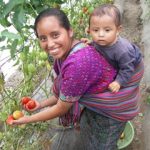
Project Design for Sustainable Development 101
8 Week Class
Hands On
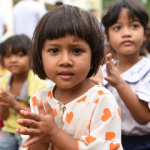
Project Funding for Sustainable Development 102
8 Week Class
Hands On
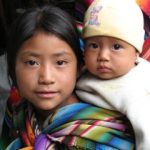
Project Launch Sustainable Development 103
8 Week Class
Hands On
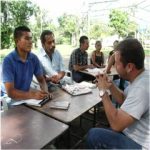
Project Management Sustainable Development 104
8 Week Class
Hands On

International Climate Smart Agriculture
8 Week Class
Hands On
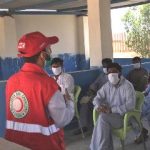
DRR Disaster Management Prevention, Recovery
8 Week Class
Hands On
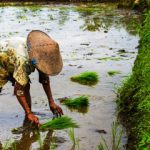
Water Conservation and Management
8 Week Class
Hands On

Village Vegetable Gardens for Food Security
8 Week Class
Hands On

Breaking News: Climate Solutions
Monthly
Subscribe Now!
Copyright © 2008-2025, Center for Sustainable Development, Inc. All rights reserved. CSDi is a U.S. registered 501(c)(3) nonprofit organization that specializes in providing sound, evidence-based information, tools and training for climate change and sustainable development for development and nonprofit professionals worldwide. Visit our training catalogue.